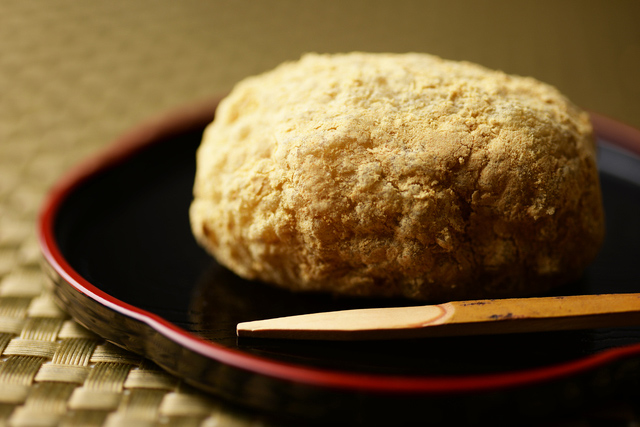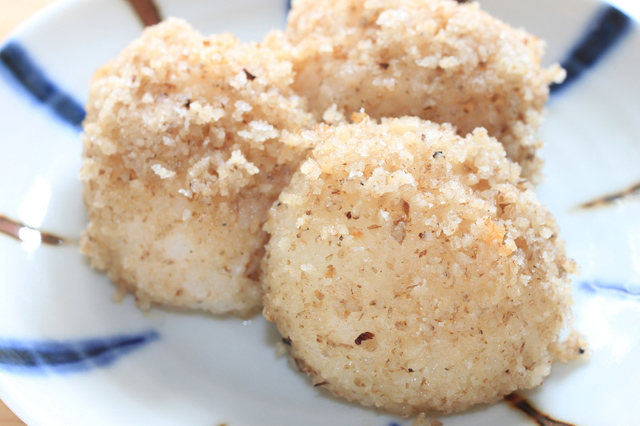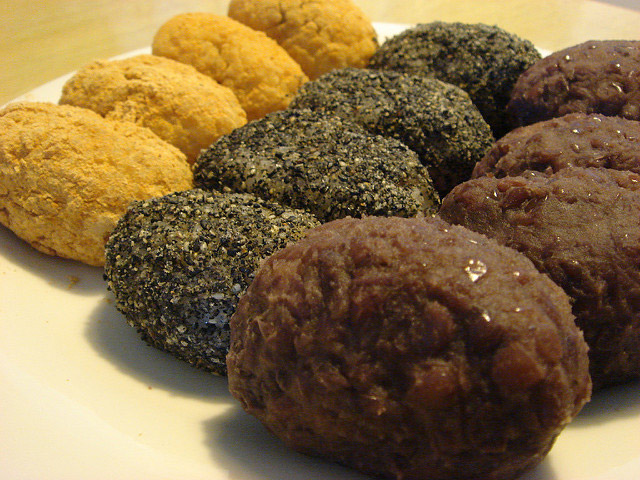
Japanese Sweets: The Charms of Ohagi
In Japan, traditional sweets are called wagashi. In this article, we'll look at a particular favorite Japanese sweet called ohagi. While they may look humble, they play an important part in Japanese food culture. Read on to learn all about the many charms of ohagi!
This post may contain affiliate links. If you buy through them, we may earn a commission at no additional cost to you.
Ohagi is a very popular Japanese wagashi, and is most commonly made with a rice cake covered with bean jam.
This Japanese sweet is made from rounded cooked sticky rice which is wrapped in red bean paste or soybean flour.
The difference between ohagi and mochi rice cakes the way the sticky rice is processed. Unlike mochi, where the rice is kneaded to a smooth texture, the rice is only partially mashed to make ohagi. This process is called “hangoroshi”, and allows the rice to stick together while still retaining the texture of the individual grains.
The most common ohagi flavors are red bean paste and soybean flour called kinako. We can also wrap the ohagi with flour of sesame or walnut.
Our Top Tips
JR Pass for Whole Japan
Explore Japan in the most convenient and economical way with a Japan Rail Pass! It is valid for the majority of railways and local buses operated by JR.
Anko Ohagi – Red Bean Paste Ohagi
Anko, or red bean paste, is made from boiled adzuki bean sweetened with sugar.
Our Top Tips
Japan Shinkansen, Narita Express (N'EX) & Express Train Tickets
Plan ahead by booking your shinkansen, airport train, and express train tickets online in English. Have the tickets sent to you by mail or collect them at the station once you're in Japan.
Kinako Ohagi – Soybean Flour Ohagi
Kinoko is a flour made from soybean. To flavor ohagi and other wagashi, the flour is sweetened with sugar.
PIXTAKurumi Ohagi – Walnut Ohagi
Similar to kinako, this is also flour made from walnuts that is mixed together with sugar.
PIXTAThe anko ohagi is the standard type of ohagi that has been enjoyed in Japan since the olden days. It is a good match with Japanese tea, and they are usually served together.
PIXTAA long time ago, ohagi was a valuable dish served to treat guests and used for memorial services. Its existence was similar to the role cake played in western cultures.
In Japan, there are memorial services to pay respect to the ancestors called “ohigan" (equinoctial week), that are held 2 times in spring and fall. At those times, ohagi is made in every household and is sold in supermarkets as an offering to the ancestors.
Every family's ohagi is unique. Although the shape and general recipe is the same, the taste of the red bean paste and the size is different from household to household.
Cookie M/FlickrMost Japanese sweet shops sell ohagi, please try to enjoy ohagi when you come to Japan.
If you're curious about what other types of Japanese sweets there are out there, we've got all you need to know in our guide to 25 Must Try Japanese Wagashi.
The information in this article is accurate at the time of publication.






